Branding – The process of creating a unique name and image for a product
Note: Once a unique name and image has been created it needs to come alive in a consumer's mind, mainly through advertising campaigns with a consistent theme.
To remember what branding is, recall the following mnemonic:
In branding the cow, she used a unique name and image each time.
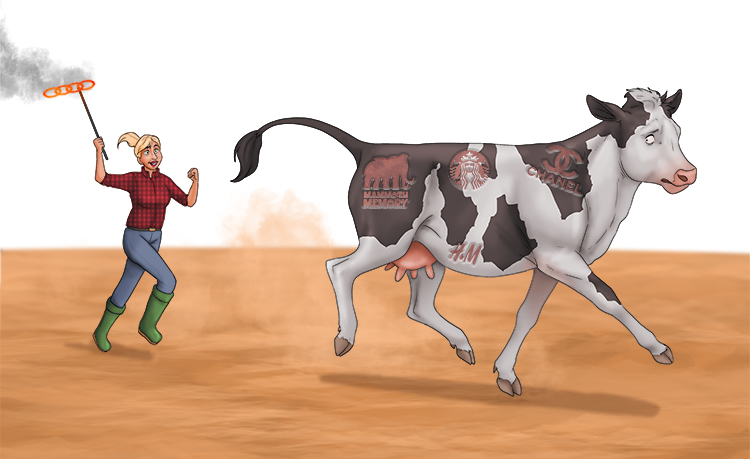
Commercial artists are often employed in branding, creating logos and images, choosing typefaces and laying out advertisements. They might be involved in creating animations that include artwork for TV, internet and cinema.
Coca-Cola is one of the most recognisable brands in the world.
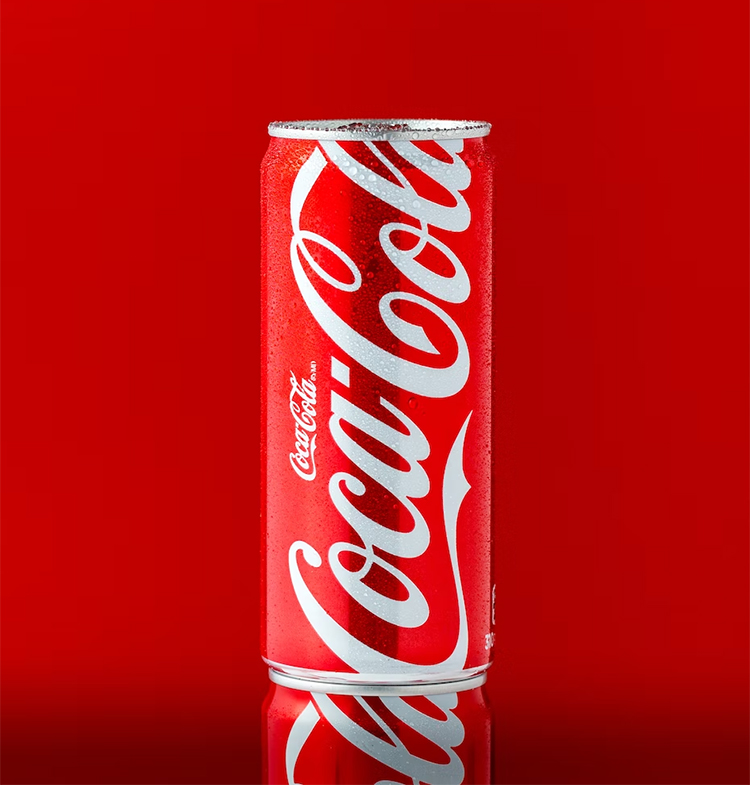
While Coca-Cola have their name as their logo, some brands are so well known, most people would know them just by the logo. Starbucks is a great example of this.
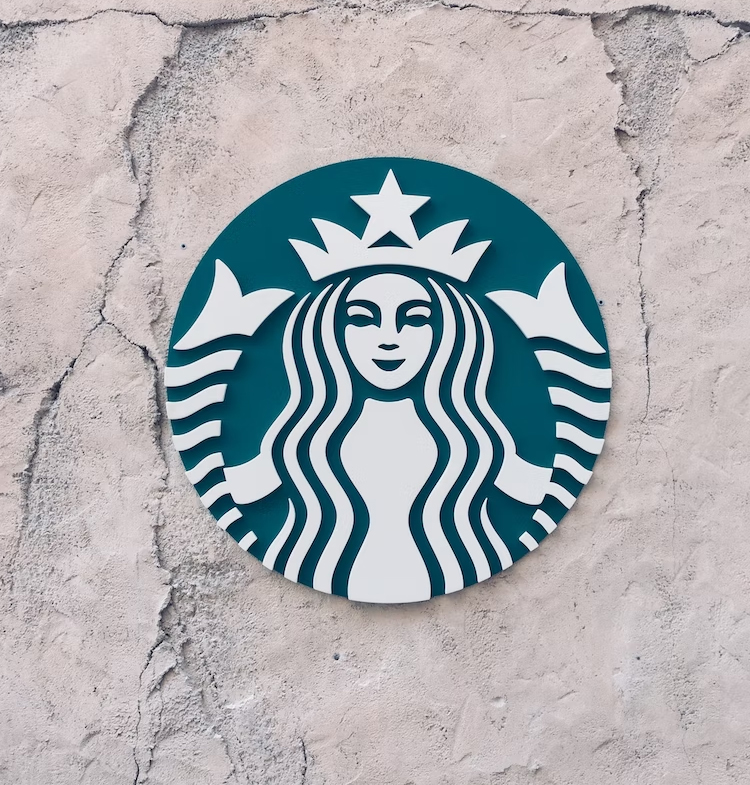
For this project, we're going to create a brand for your artwork. You'll need to think about the following four things:
Name
Slogan
Logo
Colour scheme
Below is how a creative commercial art team carried this out for McDonald's.
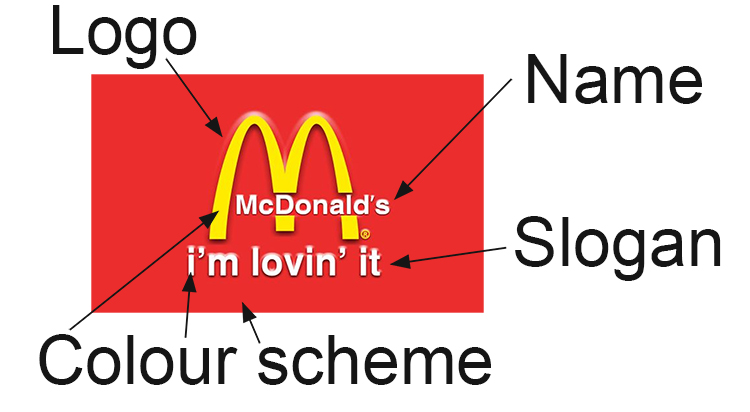
When choosing your name, you need to think about whether you want to use your own name, or an invented name. Maybe you have a favourite animal you want to include or have a nickname that you're more commonly known by? Write as many ideas as you can think of and choose your favourite. We have chosen The Painted Dog as our brand name! Don't forget to also think about what your brand does. We're building a brand for an animal artist.
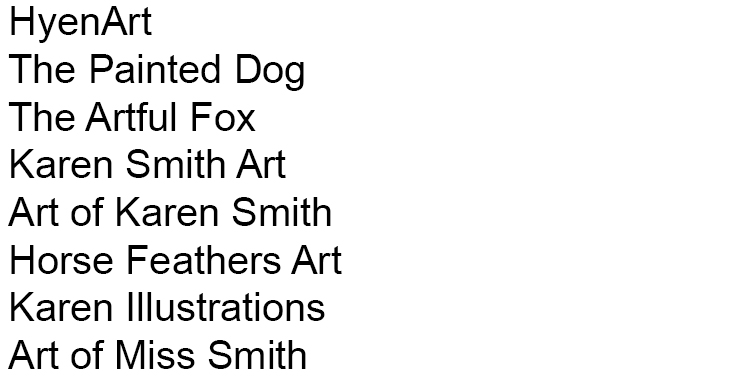
Now it's time to create your logo out of your name or symbolise the name. A logo is a symbol or other small design adopted by an organisation to identify its products or company. Simple logos often work best, but some brands have very complicated logos and are still very well known. What elements do you want to include? If your logo is just going to be your name, will it be a signature or a specific font? Sketch out various ideas and choose one you want to refine.
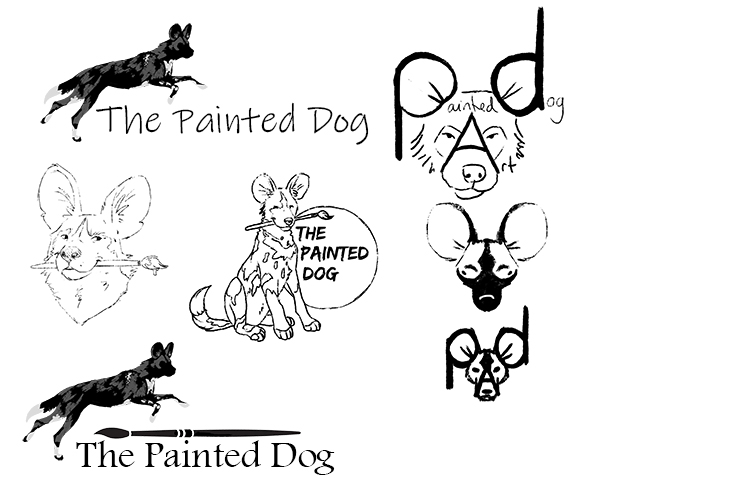
We have chosen the cute African painted dog puppy who's holding the paintbrush in its mouth. We feel this will suit our brands style of art.
Then, you need to choose your colour scheme. Think about what different colours portray. Will you use natural tones, bright neon colours, pastels or primary colours? Just one colour or several?
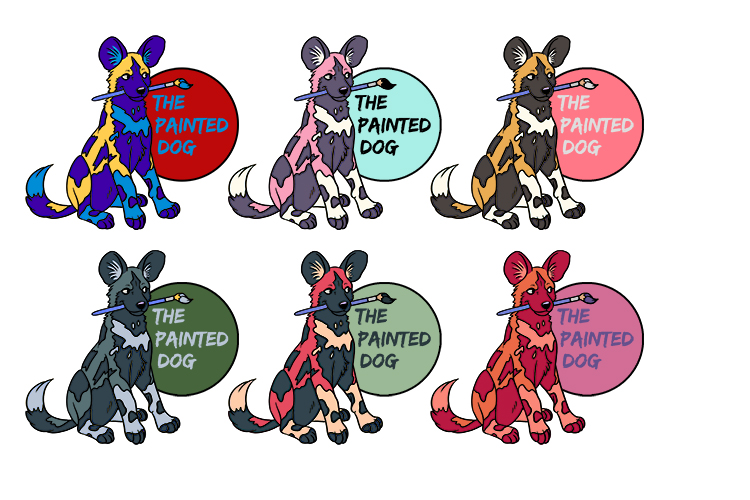
We have chosen the pink, dark purple, white and blue. We feel this would suit our brand of adorable and colourful animal art best.
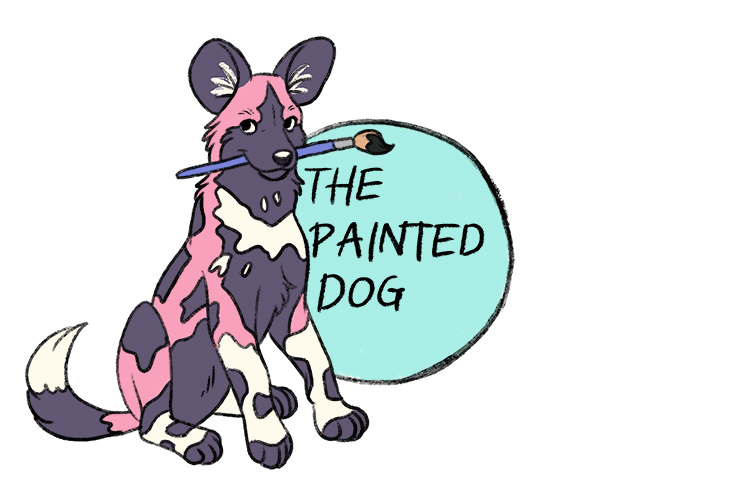
Next, you need to think about a slogan. What do your want your business to say? Popular brands create slogans which get stuck in your head and are easily recognisable. For instance Tesco: "Every little helps" or Maybelline: "Maybe she's born with it. Maybe it's Maybelline."
Again, write your ideas down and choose the slogan that you feel best fits your brand.
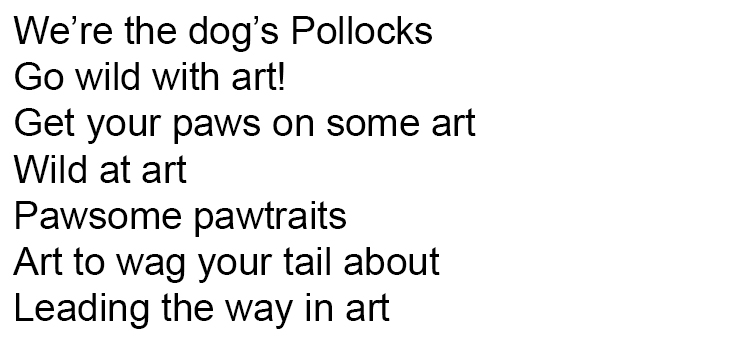
We have chosen "Wild at Art" as our slogan because it's short and to the point, and also plays on the saying "wild at heart".
Experiment with placement and decide where you want your slogan to sit.
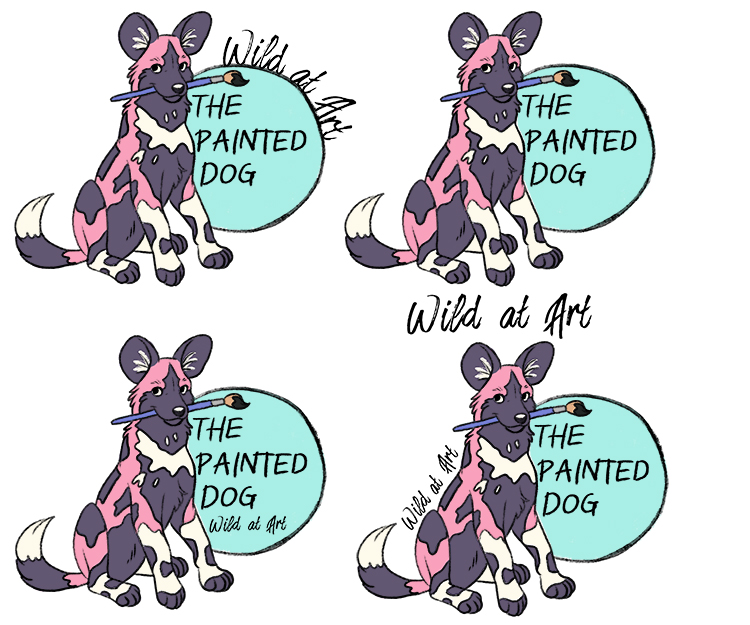
We have chosen directly underneath as we feel the others are either too hidden, or distract from the main logo. Plus, it is easily separated or removed if we decided not to include it on merchandise.
Finally, draw up your final logo with the colour scheme and slogan.
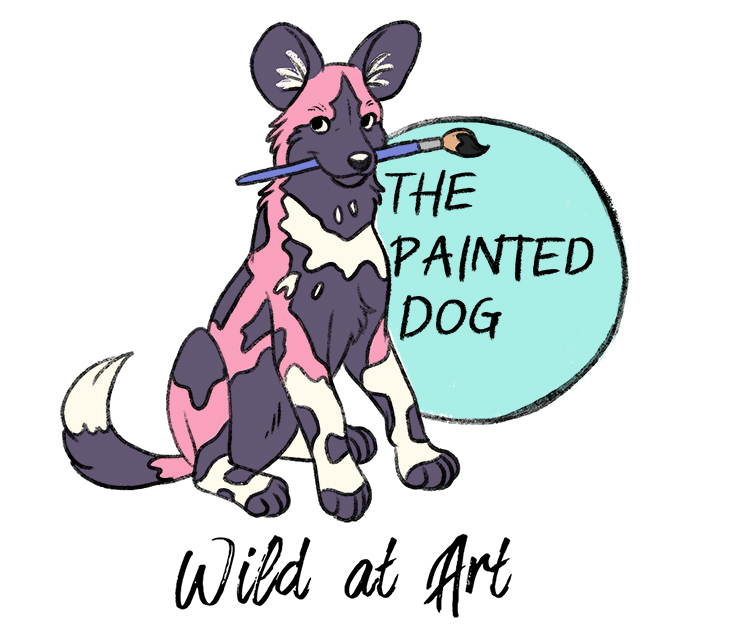
If you were really thinking about going into business, you could get your name, logo and slogan printed on merchandise, either using transfer paper which can be printed at home (for t-shirts), or using an online printing service.
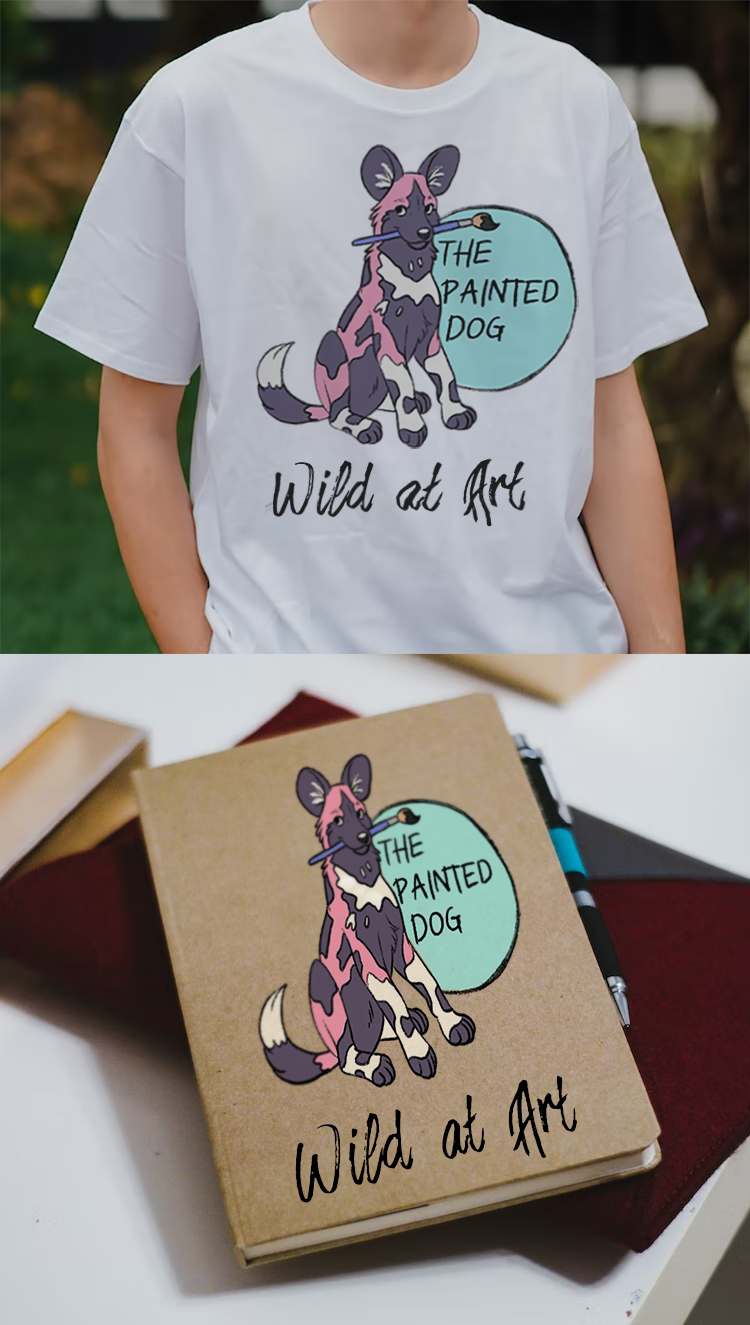
Branding.




